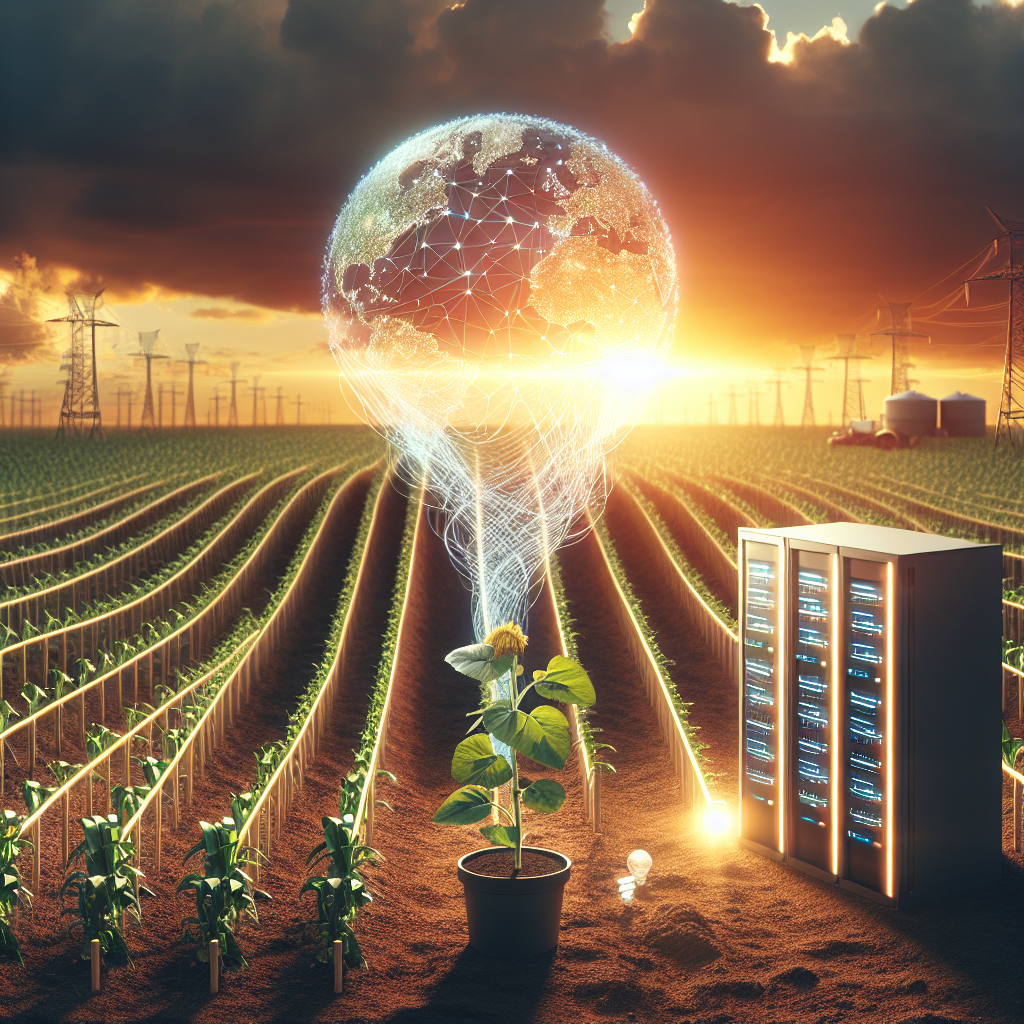Introduction to AI in Agricultural Resilience
In an era where climate change poses unprecedented challenges to global agriculture, artificial intelligence (AI) has emerged as a powerful tool in enhancing crop resilience. This technological revolution is transforming how we approach farming, offering innovative solutions to combat the adverse effects of climate change on food production.
Understanding the Climate Challenge in Agriculture
Climate change presents multiple challenges to agricultural systems worldwide, including:
- Unpredictable weather patterns
- Increased frequency of extreme weather events
- Changes in precipitation patterns
- Rising global temperatures
- Emergence of new pests and diseases
AI Technologies Revolutionizing Crop Resilience
1. Predictive Analytics and Weather Forecasting
AI-powered predictive analytics are revolutionizing how farmers prepare for and respond to weather conditions. These systems:
- Analyze historical weather data to predict future patterns
- Provide real-time weather monitoring and alerts
- Help optimize planting and harvesting schedules
- Enable proactive risk management strategies
2. Smart Irrigation Systems
AI-driven irrigation systems are transforming water management in agriculture:
- Precise water distribution based on soil moisture levels
- Automated irrigation scheduling
- Real-time monitoring of crop water needs
- Reduction in water waste and optimization of usage
3. Crop Disease Detection and Management
Advanced AI algorithms are enhancing crop protection through:
- Early detection of plant diseases using image recognition
- Predictive modeling of disease outbreaks
- Automated pest monitoring systems
- Targeted treatment recommendations
Genetic Optimization and Breeding Programs
AI is revolutionizing crop breeding programs through:
- Genetic sequence analysis for improved traits
- Prediction of optimal crop varieties for specific conditions
- Acceleration of traditional breeding processes
- Development of climate-resilient crop varieties
Precision Agriculture and Resource Management
1. Soil Health Monitoring
AI-powered soil analysis systems provide:
- Real-time soil composition analysis
- Nutrient level monitoring
- pH balance optimization
- Recommendations for soil amendments
2. Drone and Satellite Technology
Advanced imaging and monitoring capabilities include:
- Crop health assessment through spectral analysis
- Field mapping and monitoring
- Yield prediction and optimization
- Resource allocation planning
Economic and Environmental Benefits
The implementation of AI in agriculture offers numerous benefits:
- Increased crop yields and quality
- Reduced resource waste and environmental impact
- Lower production costs
- Enhanced food security
- Sustainable farming practices
Future Prospects and Challenges
Emerging Technologies
The future of AI in agriculture holds promising developments:
- Advanced robotics and automation
- Enhanced machine learning algorithms
- Improved sensor technologies
- Integration with blockchain for supply chain management
Implementation Challenges
Several challenges need to be addressed:
- Cost of technology adoption
- Technical expertise requirements
- Data privacy and security concerns
- Infrastructure needs in rural areas
Best Practices for AI Implementation in Agriculture
Successful integration of AI technologies requires:
- Comprehensive training programs for farmers
- Regular system updates and maintenance
- Integration with existing farming practices
- Collaboration with agricultural experts
Case Studies and Success Stories
Real-world examples demonstrate AI’s impact:
- Increased crop yields in drought-prone regions
- Successful disease prevention in large-scale farms
- Water conservation achievements
- Enhanced profitability for small-scale farmers
Conclusion: The Future of Climate-Resilient Agriculture
AI technology is proving to be an invaluable tool in building climate-resilient agricultural systems. As these technologies continue to evolve and become more accessible, they will play an increasingly crucial role in ensuring global food security and sustainable farming practices. The integration of AI in agriculture represents not just an technological advancement, but a necessary evolution in how we approach farming in the face of climate change.
Recommendations for Farmers and Agricultural Stakeholders
To maximize the benefits of AI in agriculture:
- Stay informed about emerging AI technologies
- Invest in relevant training and education
- Start with small-scale implementation
- Partner with technology providers and experts
- Monitor and measure results for continuous improvement

